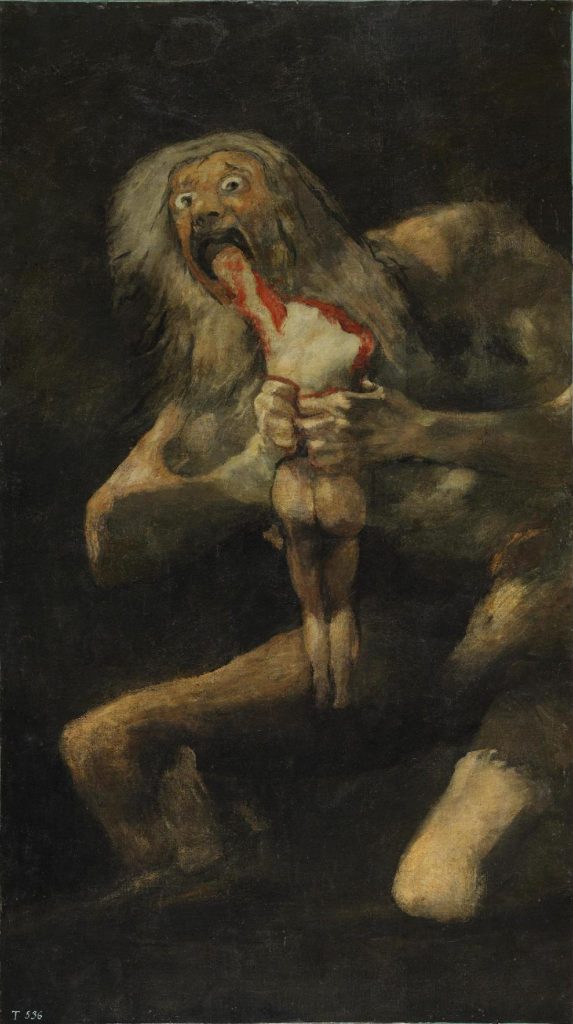| Acts 18 Back in 1976, ABC, when there were only three television networks, aired a game show called ‘Family Feud’ created by Mark Goodson. Two families competed to answer responses to various survey questions, winning cash and prizes. This was low-brow television, and tremendously successful, with three long runs. In 2013, ‘TV Guide’ ranked ‘Family Feud’ third in its list of the 60 greatest game shows of all time. My initial read of chapter 18 of the Book of Acts made me want to say, as biblical scholar Rudolph Bultmann once wrote about the story of the dishonest steward in Luke 16, “there is nothing edifying in it.” Bultmann did not know how to comment on Luke 16, and Acts 18 leaves me similarly grasping, except for this exciting verse in Acts 18:19, “At Cenchraeae, Paul had a haircut.” We appreciate little things like haircuts these days. How and where does one get a haircut? Are N-95 masks required? Paul was said to be bald…how long had his hair gotten before that a trip to the salon merited a verse in Holy Writ? Inquiring minds want to know. Otherwise, Acts 18 just seem querulous. Paul arrives in Corinth where he meets Aquila and his wife Priscilla…a fortuitous meeting as they become great co-laborers, with Priscilla one of the clearest examples of the prominence of female leadership in the early Church on record. But Aquila and Priscilla are Jews who have been driven out of Rome by Emperor Claudius, and as they partner with St. Paul, we read of conflicts in Corinth, and of Paul arguing in the local synagogue, and officials of the synagogue hauling Paul before Gallio the proconsul. It is all quite unpleasant. |

| Viewed backwards from the 21st century, there seems a most unhappy dynamic between Jews and Christians in Corinth and about everywhere else, and, of course, we know that eventually there emerged a very unhappy dynamic between the two religions, with Christians frequently violating Emily Post’s best advice on neighborly relations. Understood, however, in the context of the first century, this is a family feud among and between: 1. Jews who do not accept Jesus as the Messiah of the Jews. 2. Jews accepting Jesus as the Messiah of the Jews. 3. Non-Jews accepting Jesus as the Messiah of the Jews. Imagine, if the bars were presently open in San Miguel de Allende, three folks gathered on the terrace at Atrio for a Tamarindo margarita. One is a Canadian aspiring to American citizenship because all of her children have chosen to live in balmy Southern California. The other two are Americans, one from Atlanta and the other from Boston. After their third Tamarindo margarita, someone unwisely decides it is time to discuss the pending 2020 American presidential election. Disparate views emerge, and pretzels fly. The Canadian leans back observantly on her cushions. Corinth is the terrace at Atrio. There is no one here arguing about God outside of a Jewish context. All present are monotheists. None follow the gods of the Greeks (the Gentiles assembled on the side-lines, leaning on their cushions, have embraced monotheism); not Aphrodite, nor Epicureanism or Stoicism from up the street in Athens. These are Jews and friends arguing about the prophet Jesus. We are witness to a family quarrel. We are fortunate to have overcome these regrettable human tendencies to tear each other’s viscera from out of our bodily cavities over small disagreements. How wonderful that Roman Catholics, Anglicans, Methodists, Lutherans, Greek Orthodox, Syrian Orthodox, Russian Orthodox, evangelicals, Republicans and Democrats are able now to focus on the Big Picture, the greater good of humankind. They didn’t know, back then, those silly primitives; their salad forks from their soup-spoons, but we are advanced and sophisticated and cosmopolitan people…and no-where more so than on the terrace at Atrio! The Bible, a library of books spanning 3,000 years and many perspectives, is an extremely difficult Library to engage with integrity. The last thing you want to do is assume you understand what is going on at first glance. The very, very last thing you want to do is play Ouija Bible, open the Library, plop your finger down, and determine that God has, right there in that verse, something to say specifically to you, such as, for example, the prophet Isaiah declaring in God’s Name: “I will put an end to the arrogance of the haughty. Their infants will be dashed to pieces before their eyes; their houses will be looted and their wives violated.” (Isaiah 13: 9 – 16). Oh, let’s go do that this afternoon. Paul’s haircut at Cenchraeae would be a lucky verse for Quija Bible; winning cash and prizes! When the Claudian persecution of the Jews in Rome is lifted, and the Jewish believers in Jesus as the Messiah return to Rome, Paul abjures the (by then largely Gentile Roman) Church, to understand that the promises they have received are Jewish promises, and that they, the Gentile believers, have been grafted onto a Jewish trunk. Paul then launches a fundraising campaign for Jewish believers in Jerusalem. Maybe the contemporary point of Acts 18 is that we ought, so much as is humanly possible, with the assistance of God, to avoid family feuds, which always have nasty and unintended consequence. Grace and peace, The Reverend Canon George F. Woodward III FOR ENEMIES “O God, the Father of all, whose Son commanded us to love our enemies: Lead them and us from prejudice to truth: deliver them and us from hatred, cruelty, and revenge; and in your good time enable us all to stand reconciled before you, through Jesus Christ our Lord. Amen.” The Book Of Common Prayer, page 816 Previous Reflections may be found on the parish website StPaulSMA.com under ‘Blogs’ here. YouTube postings are available here. Previous editions of THE EPISTLE can be found here. |

| St. Paul’s Anglican Church Calzada del Cardo, 6 Centro 37700, San Miguel de Allende, Mexico 415.121.3424 www.StPaulSMA.com |

